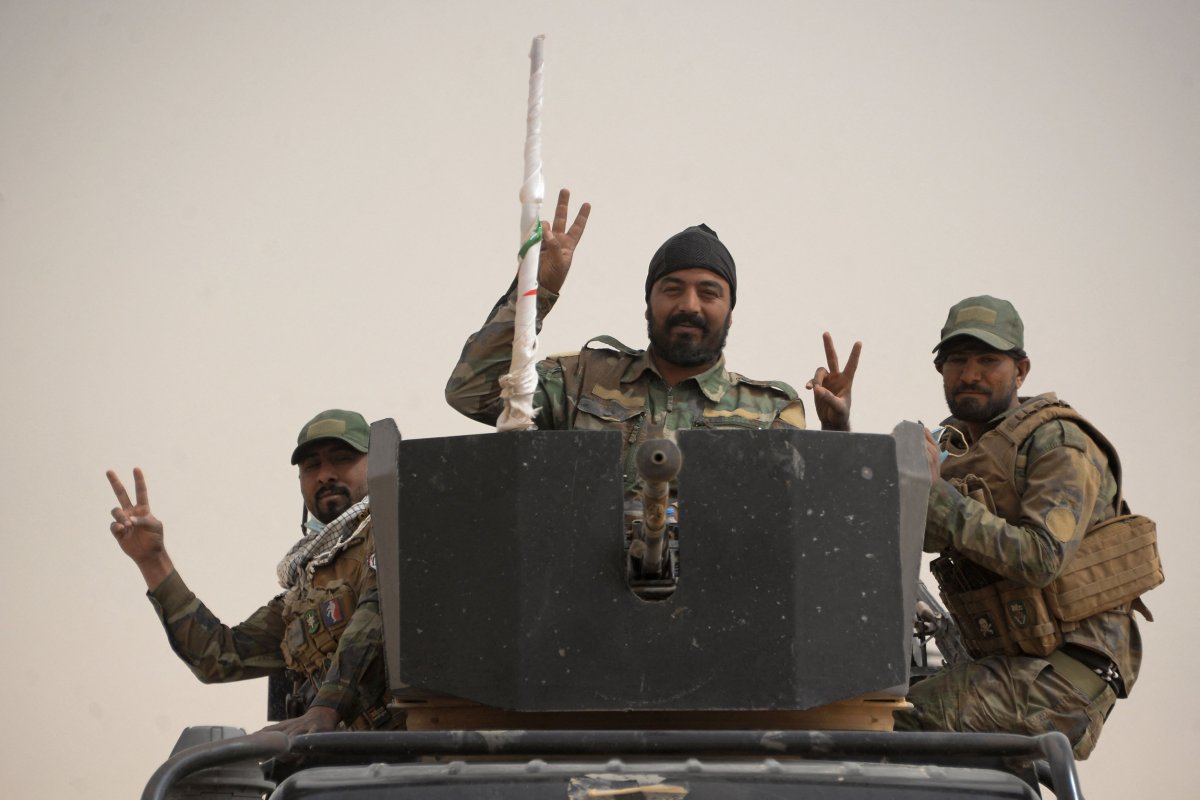Earlier this month, ISIS announced that its leader, Abu al-Hussein al-Husseini al-Qurayshi, had died fighting a rival terrorist group in Eastern Syria. It used the occasion to acknowledge its new caliph, little-known Abu Hafs al-Hashimi al-Qurayshi. Al-Hashimi is the group's fifth "caliph" since Abu Bakr al-Baghdadi was killed in a U.S. raid in October 2019. With five caliphs in less than four years, the Islamic State makes governments in the Sahel seem stable.
We should expect the usual behavior from ISIS in light of its newly appointed caliph. Like last time, affiliated groups and "provinces" are pledging "bayat" or oaths of allegiance to the new leader. They are sharing images on social media of their soldiers armed with machine guns and riding motorcycles. Sometimes, as in the photoshoots from Yemen and Iraq, there are a handful of fighters. Other times, as with the shots from Nigeria, the photos show dozens. Like last time, we are seeing dramatic attacks. The Islamic State Khorasan claimed a recent bombing in Pakistan that took 54 lives and wounded some 200. We should expect to see more dramatic attacks in the coming weeks.
But this succession is different. While every caliph has faced daunting challenges since the death of Baghdadi, the current caliph is in a worse position than his last three predecessors. In the past, ISIS would acknowledge the death or "martyrdom" of a caliph and announce a successor quickly. Last year, for example, six weeks passed between the death of Abu al-Hassan al-Hashimi (caliph number three) and the announcement of Abu al-Hussein al-Husseini (caliph number four). This time, however, over three months passed between the death of al-Husseini and the ascension of Abu Hafs al-Hashimi. This longer period of abeyance suggests further institutional deterioration of ISIS.

This deterioration could be due to a number of factors, both organizational and due to personnel. On the organizational side, it is possible that ISIS has struggled over the past three months to secure the support of its various provinces spread across the globe. Having gone through so many caliphs in such rapid succession could mean that affiliate groups are losing faith in the ISIS "brand." On the personnel side, it is possible that the leaders of ISIS struggled to agree upon a new caliph precisely because the ideal candidates have died or been rounded up by any of the authorities hunting them. We seem to hear news of another ISIS lieutenant being killed on a monthly basis.
In addition to fighting this institutional decline, the new caliph will have to reinvigorate a movement that seems to have lost all its momentum in Iraq and Syria. In 2021 and 2022, there were signs of a potential ISIS comeback in the Middle East. With large prison breaks and a steady stream of attacks, these warnings seemed plausible. But 2023 has seen a sharp decline from the preceding two years. In the month of April 2022, for example, Iraq and Syria each saw more than 100 attacks from ISIS operatives. In 2023, however, there has yet to be a month with more than 25 attacks. In the words of the lead inspector general's recent report on Operation Inherent Resolve, ISIS in these countries is in "survival posture with a low operational pace."
Given these conditions, al-Hashimi likely faces serious pressure from his affiliates to demonstrate relevance. But because of the high turnover rate and pressure from so many international players in Syria, large-scale attacks would only amp up the military pressure the remnants of ISIS already feel in the country. If this is true, the central question is whether affiliated groups in Africa and South Asia who are alive and well will stay with the ISIS organization as it bides its time, searching for new recruits and waiting for outside pressure to lessen.
This weak position is all the more reason for the United States to maintain its small troop presence in Syria. By continuing to add pressure on ISIS central, it increases the likelihood of breaking the ties between ISIS and its global provinces. The prospect of dismantling the web of ISIS affiliates is both perfectly plausible in the near future and worth the cheap cost of less than a thousand troops in Syria.
Max J. Prowant is a researcher with the Institute on Religion and Democracy. He is also a Ph.D. Candidate in Government at the University of Texas.
The views expressed in this article are the writer's own.
Uncommon Knowledge
Newsweek is committed to challenging conventional wisdom and finding connections in the search for common ground.
Newsweek is committed to challenging conventional wisdom and finding connections in the search for common ground.
About the writer
To read how Newsweek uses AI as a newsroom tool, Click here.








